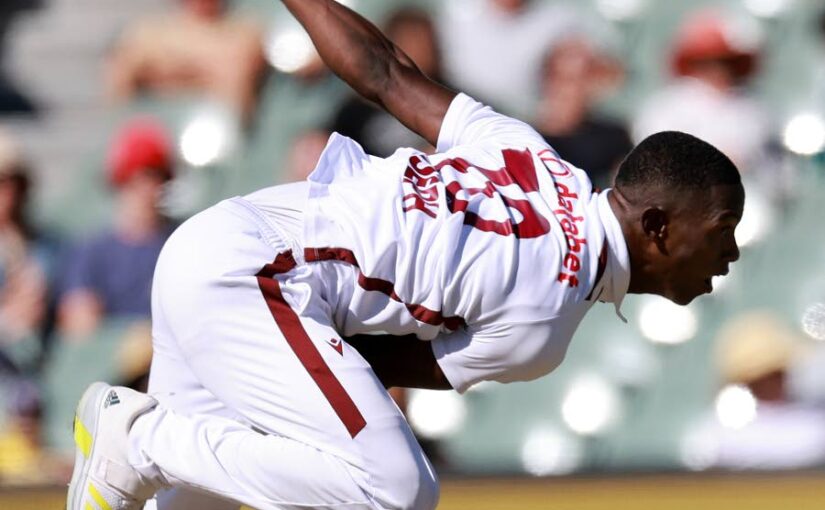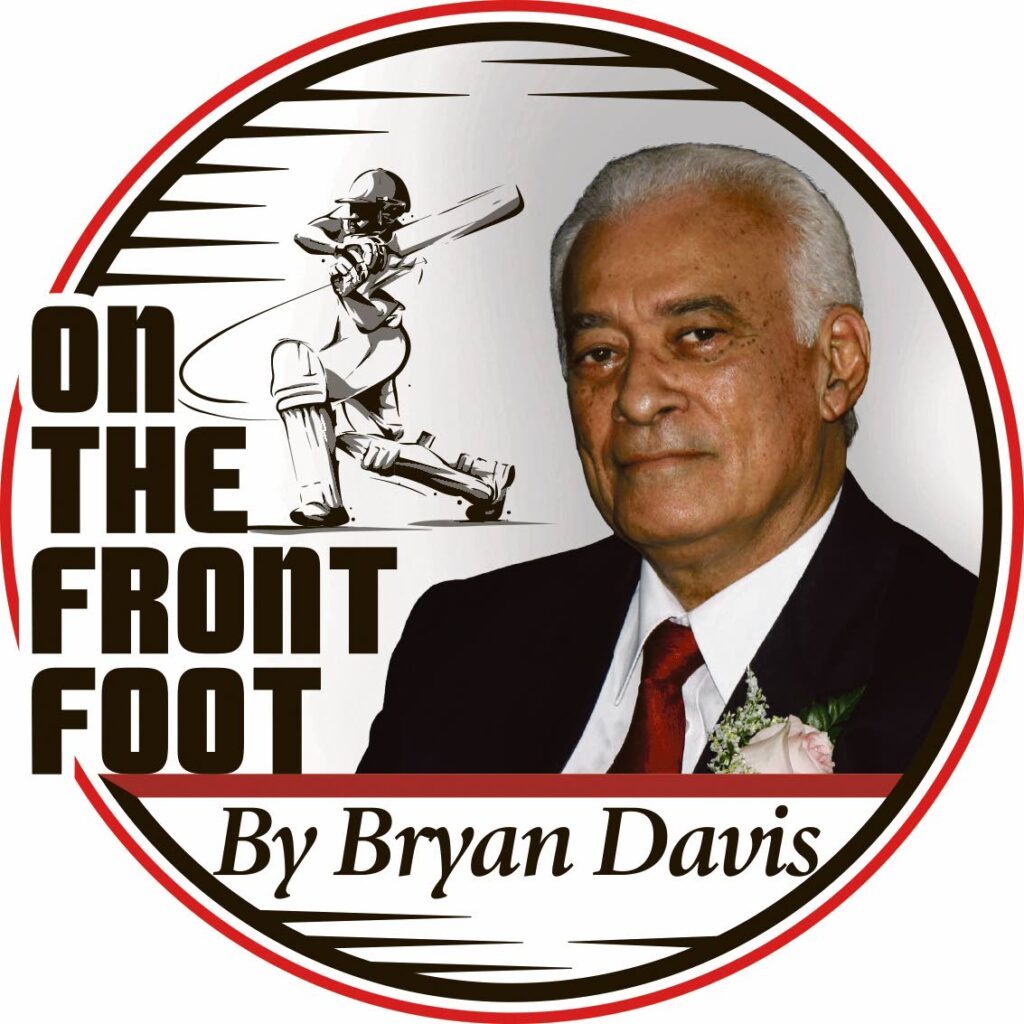 RECENTLY, I read where it was suggested to prepare faster pitches in the Caribbean which would produce quicker bowlers, hence, more victories for the West Indies. Furthermore, it was said that fast-bowling talents can be unearthed by producing faster wickets and implementing more strategic scouting initiatives. This advice was uttered mainly because of the Test match success of Shamar Joseph on the recent Australian tour re-kindling thoughts of that era of West Indian cricket that saw the Test team participate in 29 Test series in 15 years between 1980 and 1995, not losing a single series. In early 1980, there was a contentious and forgettable tour of New Zealand that has been remembered by the bad behaviour of some West Indian cricketers. The umpiring was so poor, guided by bias, plus hometown decisions, that the skipper talked to his players during a tea break when he decided not to continue the Test match. That, of course, would have been wrong, however, it goes to show how frustrated the team was with the way they were being treated on the field of play. Nonetheless, West Indies lost the three-Test series against NZ by a one-nil margin, an unlikely outcome for a series between the two opponents, especially after the visitors had completed a comprehensive two-nil defeat in a three-Test rubber against Australia just a week earlier. The Windies cricketers still believe they were treated unfairly by the NZ umpires. In those days the umpires were not from neutral countries. After that upset, the cricketers of the Caribbean went on a cricketing rampage to prove that they were better than the rest. WI didn’t lose a series in 29 consecutive Test series (for this purpose, referring to a one-off Test as a series; there were two of them) losing to Australia in the 30th, the climactic decisive Test at Sabina Park, Jamaica, the fourth in a four-Test series. Of 120 matches played in those victorious years, WI won 60. [caption id="attachment_1063529" align="alignnone" width="1024"]
RECENTLY, I read where it was suggested to prepare faster pitches in the Caribbean which would produce quicker bowlers, hence, more victories for the West Indies. Furthermore, it was said that fast-bowling talents can be unearthed by producing faster wickets and implementing more strategic scouting initiatives. This advice was uttered mainly because of the Test match success of Shamar Joseph on the recent Australian tour re-kindling thoughts of that era of West Indian cricket that saw the Test team participate in 29 Test series in 15 years between 1980 and 1995, not losing a single series. In early 1980, there was a contentious and forgettable tour of New Zealand that has been remembered by the bad behaviour of some West Indian cricketers. The umpiring was so poor, guided by bias, plus hometown decisions, that the skipper talked to his players during a tea break when he decided not to continue the Test match. That, of course, would have been wrong, however, it goes to show how frustrated the team was with the way they were being treated on the field of play. Nonetheless, West Indies lost the three-Test series against NZ by a one-nil margin, an unlikely outcome for a series between the two opponents, especially after the visitors had completed a comprehensive two-nil defeat in a three-Test rubber against Australia just a week earlier. The Windies cricketers still believe they were treated unfairly by the NZ umpires. In those days the umpires were not from neutral countries. After that upset, the cricketers of the Caribbean went on a cricketing rampage to prove that they were better than the rest. WI didn’t lose a series in 29 consecutive Test series (for this purpose, referring to a one-off Test as a series; there were two of them) losing to Australia in the 30th, the climactic decisive Test at Sabina Park, Jamaica, the fourth in a four-Test series. Of 120 matches played in those victorious years, WI won 60. [caption id="attachment_1063529" align="alignnone" width="1024"] -[/caption] The reason for that tremendous success was the inspiration gained from participating in the Kerry Packer World Series Cricket in Australia 1977-79, where the no-nonsense Packer threatened the lack-lustre team to improve their performances or head back home. That’s when the Caribbean players of that era became truly professional. Afterwards, they approached their practice sessions with more purpose, building their desire to win, understanding what it meant to be self-reliant, to be fit and ready to deal with all situations. That does not mean that they did not lose games in those 15 years, of course they did, regardless of having the best fast bowlers, plus the fiercest on the planet, it didn’t matter; unless your team had eleven unselfish, fit men with a winning attitude, to lapse for an innings could be disastrous. What I’m getting at is, there is one way to win matches and that’s in the preparation of the team with all men on board having the same desire to win. During those years of success as I already explained, the WI team also lost games, nevertheless, they won more and drew others. Fast bowling is a great assistance but, just part of a team. While they were claiming wickets, their batsmen like Gordon Greenidge, Desmond Haynes, Vivian Richards, Alvin Kallicharan, Clive Lloyd and Larry Gomes, gave the team an advantage. One must also bear in mind the superb slip catching that assisted the fast bowlers to add to their tally. An entire team effort. WI need cricketers and the knowledge how to find them and nurture them is the answer. Good cricketers who are well trained will win matches, not necessarily just someone who could bowl fast. A good bowler can bowl on any type of wicket, he just has to learn to adjust to the demands of the pitches that are presented for a game. When Alf Valentine and Sonny Ramadhin demolished England in their own backyard in 1950, no one asked to prepare slow turning wickets to develop spinners, nor when Lance Gibbs was first West Indian to 300 Test wickets, bowling on any surface. Preparing fast wickets around the Caribbean would fail its purpose. Teach them: bowlers, batsmen and fielders how to play the game. Give them a dose of cricket intelligence and teach them to think cricket. With ability and sound coaching one can produce on any wicket. Then, one is prepared for any circumstance with which he’s confronted, because he’ll automatically know what to do. A good cricketer is good, regardless of conditions. The post Cricket intelligence needed appeared first on Trinidad and Tobago Newsday.
-[/caption] The reason for that tremendous success was the inspiration gained from participating in the Kerry Packer World Series Cricket in Australia 1977-79, where the no-nonsense Packer threatened the lack-lustre team to improve their performances or head back home. That’s when the Caribbean players of that era became truly professional. Afterwards, they approached their practice sessions with more purpose, building their desire to win, understanding what it meant to be self-reliant, to be fit and ready to deal with all situations. That does not mean that they did not lose games in those 15 years, of course they did, regardless of having the best fast bowlers, plus the fiercest on the planet, it didn’t matter; unless your team had eleven unselfish, fit men with a winning attitude, to lapse for an innings could be disastrous. What I’m getting at is, there is one way to win matches and that’s in the preparation of the team with all men on board having the same desire to win. During those years of success as I already explained, the WI team also lost games, nevertheless, they won more and drew others. Fast bowling is a great assistance but, just part of a team. While they were claiming wickets, their batsmen like Gordon Greenidge, Desmond Haynes, Vivian Richards, Alvin Kallicharan, Clive Lloyd and Larry Gomes, gave the team an advantage. One must also bear in mind the superb slip catching that assisted the fast bowlers to add to their tally. An entire team effort. WI need cricketers and the knowledge how to find them and nurture them is the answer. Good cricketers who are well trained will win matches, not necessarily just someone who could bowl fast. A good bowler can bowl on any type of wicket, he just has to learn to adjust to the demands of the pitches that are presented for a game. When Alf Valentine and Sonny Ramadhin demolished England in their own backyard in 1950, no one asked to prepare slow turning wickets to develop spinners, nor when Lance Gibbs was first West Indian to 300 Test wickets, bowling on any surface. Preparing fast wickets around the Caribbean would fail its purpose. Teach them: bowlers, batsmen and fielders how to play the game. Give them a dose of cricket intelligence and teach them to think cricket. With ability and sound coaching one can produce on any wicket. Then, one is prepared for any circumstance with which he’s confronted, because he’ll automatically know what to do. A good cricketer is good, regardless of conditions. The post Cricket intelligence needed appeared first on Trinidad and Tobago Newsday. Source: https://newsday.co.tt/2024/02/12/cricke ... nce-needed